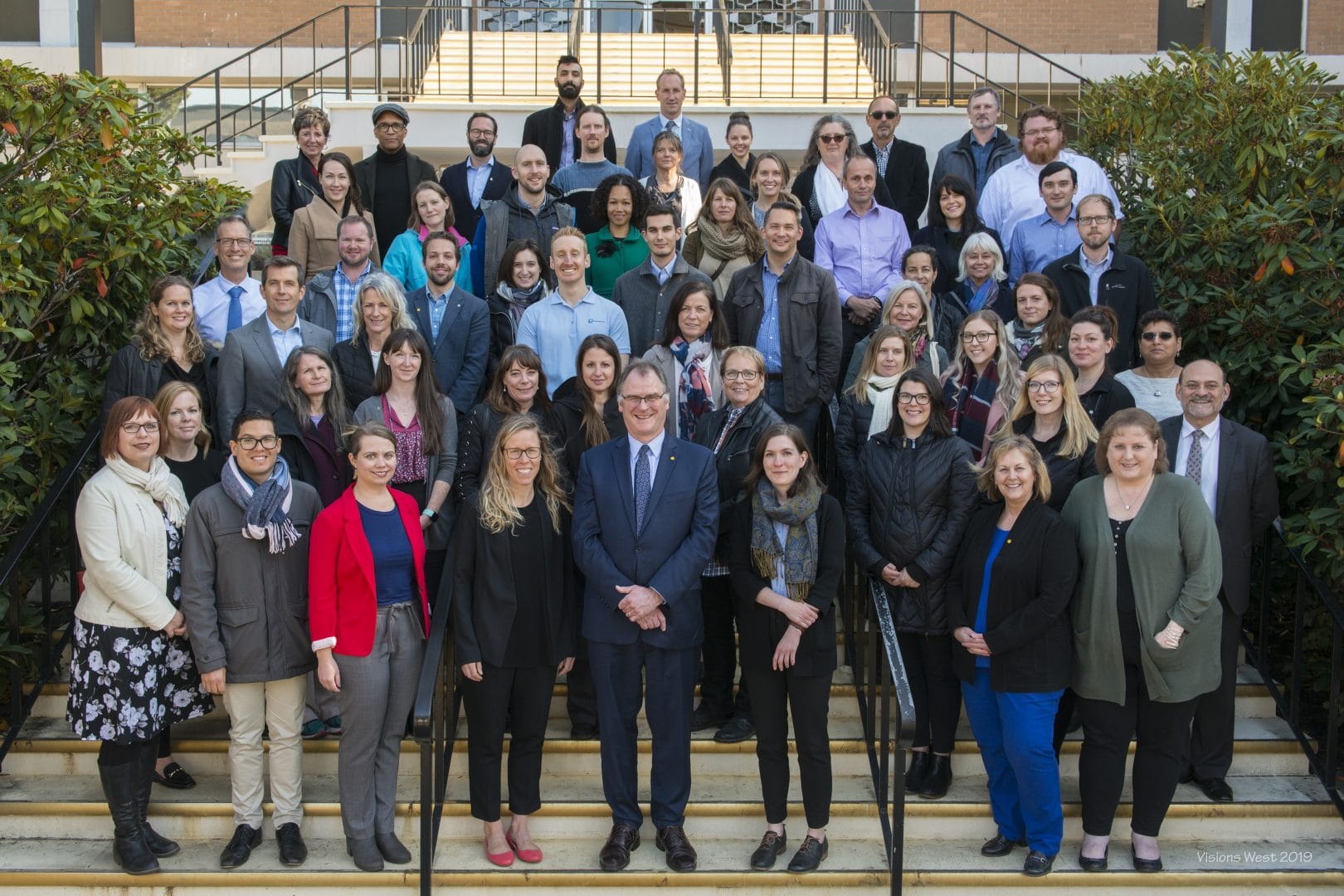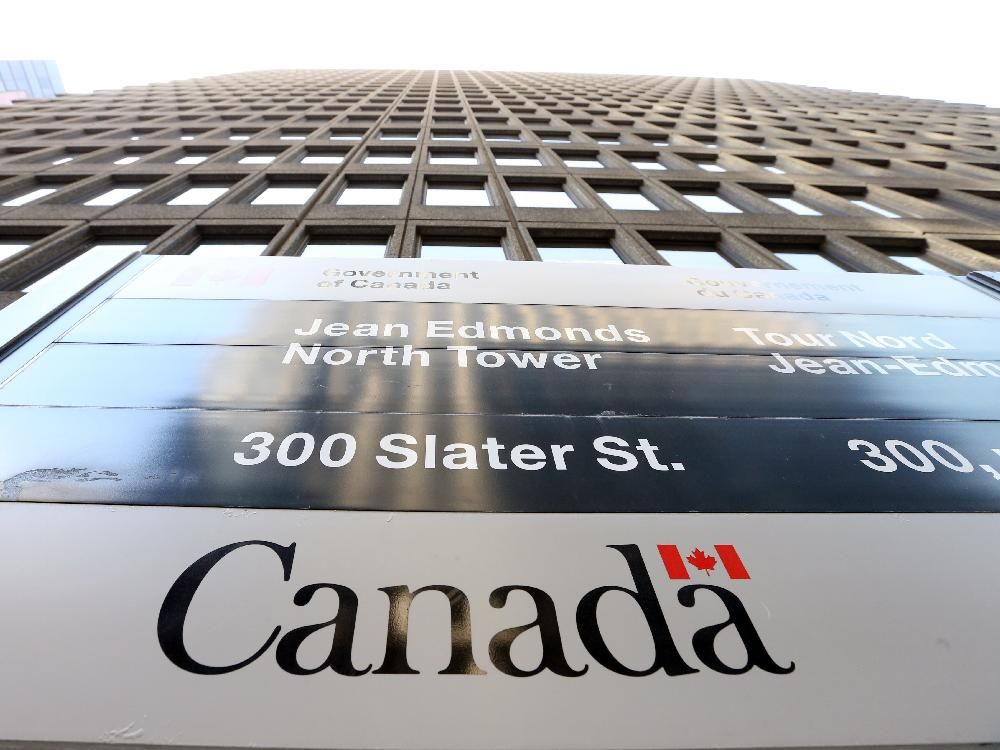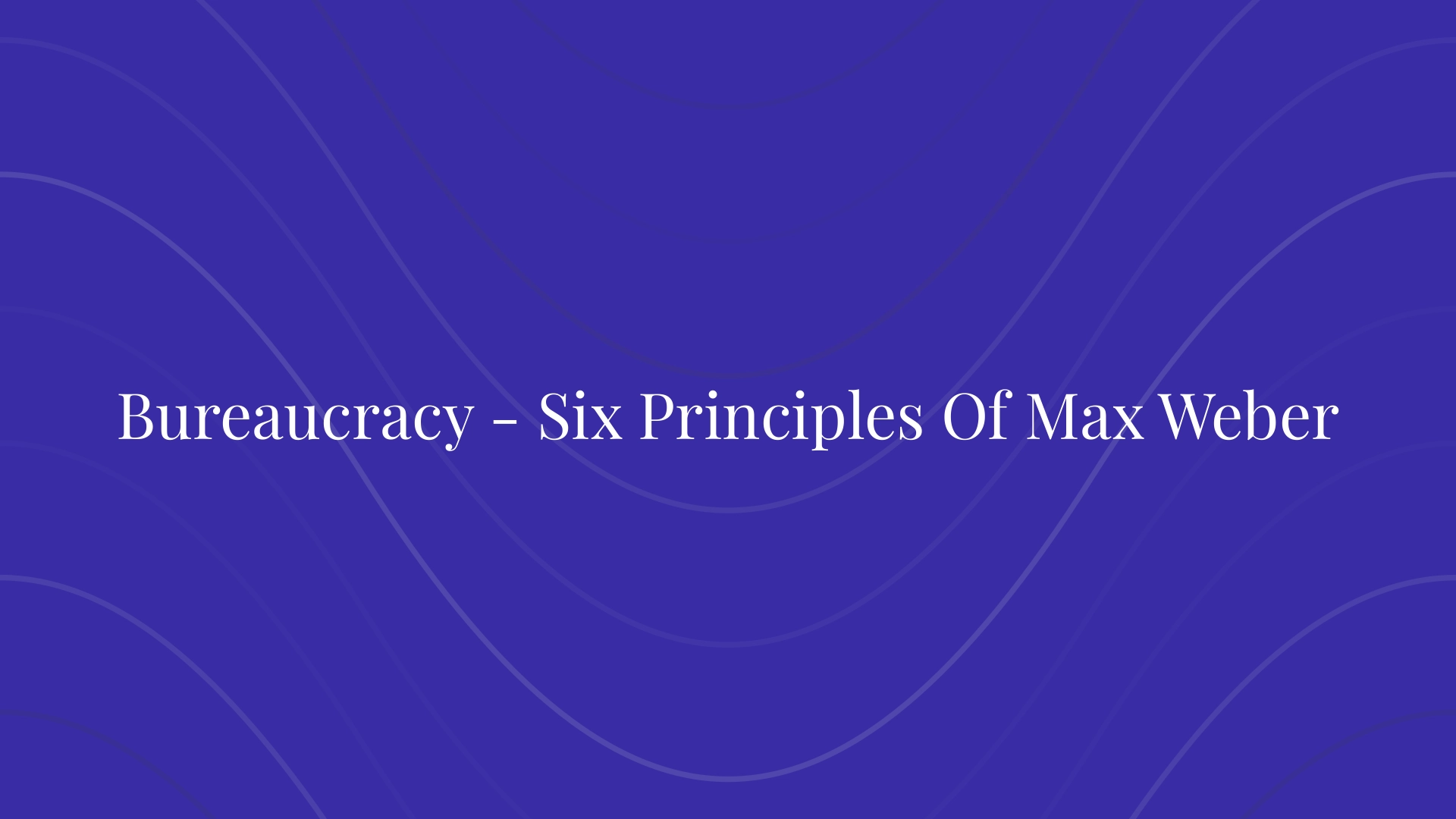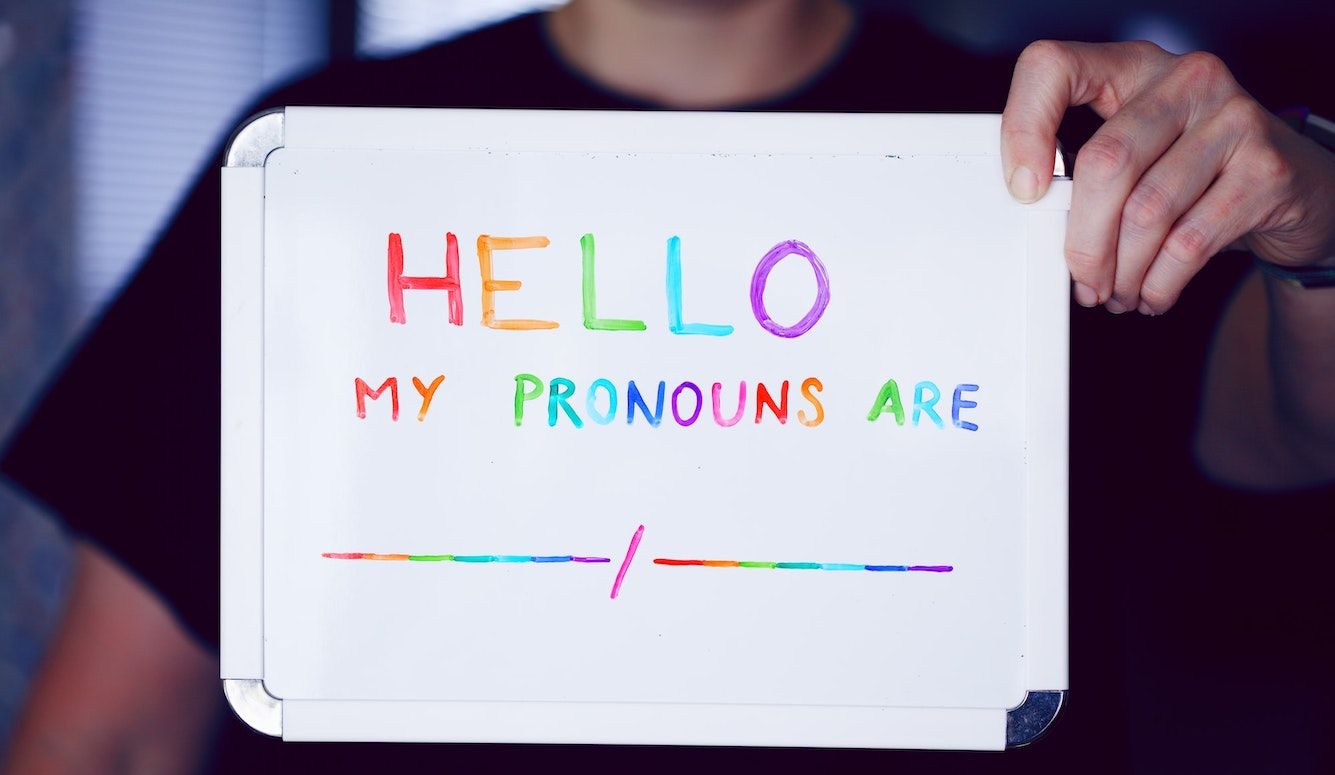Biology and Gender
I Blew Up My Lucrative Public-Service Career (And So Can You)
A veteran of British Columbia’s public-sector workforce explains how DEI enforcers forced him to choose between keeping his job and honouring his values.

My last day as an investigator with the British Columbia Office of the Ombudsperson started unremarkably. I rode a skateboard to my office in the heart of downtown Victoria and climbed the stairs to the sixth floor with its stunning views across the strait of Juan de Fuca to the Olympic Mountains in Washington state. I exchanged pleasantries with coworkers, settled into my office, and got to work investigating complaints about allegedly unfair practices committed by B.C. provincial employees.
At 10am, my manager knocked on my door and told me our Executive Director was waiting to meet with us, and could I please come with her. Now.
I experienced an acute pulse of anxiety. I asked what it was about, but my manager said she couldn’t tell me. It was clear I was in trouble—and I had a pretty good idea why.
When I arrived in the boardroom, the Executive Director and a colleague from the HR department were already seated at the table. Once I sat down, the Executive Director explained that I was suspected of professional wrongdoing, and that I’d be suspended from work pending the results of an investigation. She handed me an envelope, which she said contained a letter explaining all the details I was allowed to know. After less than five minutes, the meeting was over, and my manager escorted me out.
These events took place in late 2022, almost two years ago. As things turned out, it would be the last time I saw the inside of that building.
I ducked into the nearest bus shelter to avoid the morning drizzle and opened the envelope. It contained a letter from Jay Chalke, the B.C. Ombudsperson, explaining that I was suspected of publicly leaking information that had served to embarrass the organisation.

My heart sank. I was guilty. Though I was still in my early 40s, my career was now effectively over.
This is a nightmare scenario for a public servant. A career in government is a long-term play: While the work can often be repetitive and bureaucratic, you hope to rise through the ranks and eventually cash out with a respectable pension. The benefits and job security are better than what you can expect in the private sector.
A career in government is a long-term play: While the work can often be repetitive and bureaucratic, you hope to rise through the ranks and eventually cash out with a respectable pension.
The downside is that if you somehow manage to get fired (which is difficult, but, as my example demonstrates, not impossible), you lose all that; and, in most cases, your public-sector work experience likely won’t help you get a good corporate job. And so you will likely be starting out at the bottom. This is why most public servants adopt a risk-averse attitude, keep their heads down, and dutifully perform their assigned tasks, even if they believe them to be pointless.
There’s a stereotype that casts government bureaucrats as lazy and uncaring. During my eleven years in the public service, I certainly met a few co-workers who answered to that description. But most of my colleagues possessed a sincere desire to help people and make the world a better place, at least when they began their careers. That could mean helping poor families feed their children, protecting our environment for future generations, or advancing our nation’s interests on the global stage.
By international standards, moreover, Canadian public-sector workers do a pretty good job. Notwithstanding the many stories we see in the media about delays, incompetence, and even corruption among government workers, the work they do is a big reason why Canada is (generally speaking) a safe, orderly, and prosperous society.

This is something that many conservatives and libertarians don’t properly appreciate. The device you’re using to read this was created because inventors knew that governments would protect their patents. The car you drive (on government-paved roads) isn’t a death trap because manufacturers are required to follow government regulations. And you can go to bed at night knowing that if someone tries to break into your house, you can call the police, who have a government-supplied monopoly on the use of force.
In the early 20th century, German sociologist Max Weber identified a number of principles that should guide a public bureaucracy. One was impersonality: decisions should be applied equally to everyone, and be based on objective evidence and impartial rules. This discourages nepotism and outside interference. In B.C.’s public service, this principle is reflected in the Standards of Conduct for B.C. Public Service Employees, which obliges employees to “objectively and loyally fulfill their assigned duties and responsibilities, regardless of the party or persons in power and regardless of their personal opinions.”

To take a few basic examples: A police officer shouldn’t arrest a person just because he or she doesn’t like him. And bureaucrats shouldn’t deny benefits or licences to a citizen because they don’t approve of his or her political affiliation, religion, sex, sexual orientation, or skin colour. While the system doesn’t always work this way (humans being fallible creatures), it’s obviously an ideal worth pursuing.
Ultimately, it was the apparent rejection of that ideal by a growing number of my colleagues at the B.C. Ombudsperson’s office that caused me to act as I did, setting in motion a chain of events that led to my exit. And given the high stakes at play in protecting the integrity of the public service, I would do it all again if given the chance.
Public service was a second career for me. During my first, I spent eight years working as a welder, mostly in Alberta’s oil-and-gas industry. I enjoyed some aspects of the work, but I was (and remain) concerned about climate change—a concern I couldn’t square with my employment in an industry whose products heat the planet. So I went to university, got a degree, and found employment with the B.C. government; working at several provincial ministries before landing at the Ombudsperson’s office.
I experienced all the usual frustrations that anyone who’s worked in government (as well as some large corporations) can recite. Inefficiency was common, and projects were often disconnected from real-world needs, with the real (unstated) goal sometimes being to advance my superiors’ careers rather than the public good. But there were also many opportunities to do good.
I investigated complaints about the health system, helping patients secure better care as a result. I helped implement remote monitoring for heart-failure patients, for instance, which helped them track their cardiac status without endless in-person medical appointments. And when the COVID pandemic hit, I helped the B.C. government acquire and distribute protective equipment, and accelerated the training and hiring of needed healthcare staff. And so while some aspects of the job were maddening, I generally felt good about myself and the work I did.
When I started my career, the commitment to impartiality and non-partisanship seemed universal. Talk of personal politics was generally avoided at work. I could collaborate with people on extended projects without ever learning their personally held ideological views. But as the years crept by, things started to shift. While the goal had once been to deal with British Columbians on an equal and unbiased basis, a wave of policy changes and training sessions channelling questionable offshoots of DEI (Diversity, Equity, and Inclusion) began promoting the idea that people should be treated differently based on their identities.
This included a Canadian federal policy that had been adopted by the B.C. government called “GBA+”—or Gender Based Analysis Plus—encouraging us to prioritise “intersectional considerations.” Sensing that such explicitly identity-conscious doctrines now had official sanction at the highest levels of government and administration in British Columbia, my co-workers increasingly began sharing their progressive political and ideological bona fides at work.
Not so long ago, this might have been seen as a career-limiting move. But following the 2017 election of a left-wing provincial government, which fully endorsed the tenets of intersectionality, it was the opposite—the equivalent of demonstrating to your boss that you were a card-carrying adherent of what had become, in effect, an official state religion.
And like all religions, this one came with rituals, such as land acknowledgments, recitations of one’s “privileged positionalities,” and pronoun checks. Ambitious workers were quick to add all of these to their email signatures and slideshow scripts.
When this trend began in the early 2010s, I didn’t think much of it. This was before the social-justice movement had taken on its coercive, cultish character, and I made excuses for the creeping introduction of political slogans and rituals into our meetings and documents. I told myself that these were just superficial changes that had little actual impact on the public, and as long as I was able to carry out my own tasks ethically, I wasn’t compromising my values.
Unfortunately, I soon began noticing that this trend was having real effects on the British Colombians we were supposed to be serving. I was working at the Ministry of Health when my division implemented expanded access to surgeries for patients with gender dysphoria. Like most people, I assumed these treatments were evidence-based therapies reserved for adults, and subject to rigorous safeguarding in order to prevent abuse. And so I was shocked when I learned that safeguarding protocols in regard to genital surgery for adults are essentially non-existent; children are being given puberty-blocking drugs with little assessment, despite a lack of evidence that they are safe or effective; and “gender-affirming” mastectomies are being done on youth.

As time went on, the evidence kept mounting that the public service was no longer making decisions based on the available evidence, but rather was increasingly acting on either ideological considerations, or a fear of running afoul of the ideological puritans who had the ear of the new government.
In 2020, that government appointed a former judge to examine allegations that healthcare workers were playing a Price Is Right-style game whereby they would guess the blood-alcohol level of Indigenous patients. Despite finding no evidence to support this allegation, the review metastasised into a wide-ranging investigation, which concluded that anti-Indigenous racism is supposedly pervasive in the provincial health system.
I read the report, and found its methodology and conclusions to be extremely questionable. The authors had relied on such factors as the existence of health disparities (which can be attributed to any number of causes) and difficulties accessing care in First Nations communities (a problem across all rural areas in B.C.). Investigators had invited Indigenous people to share any negative experiences they’d had with the health system, but apparently made no effort to check their veracity or distinguish run-of-the-mill poor service from racism. (The report also noted that some healthcare workers had expressed a belief that the health system wasn’t racist, which the reviewers concluded was itself evidence of racism, on the basis that it betrayed their lack of enlightened awareness of systemic forms of discrimination.)
At the time the report was published, I was working as a policy analyst in the health-education sector. I was surprised that my colleagues avoided any form of critical discussion of the report’s questionable claims and research methodology. The only discussions centred on how we could start implementing the recommendations. And this was before the government had even accepted them.
In retrospect, this is not so surprising, as the report landed in late 2020, at a time when Canadian progressives—fired up by the George Floyd protests in the United States—were eager to rubber-stamp pretty much any accusation of bigotry directed at their own society. (Things would only get worse in 2021, when many Canadian media falsely reported that the “remains” of 225 Indigenous children had been unearthed on the grounds of a former B.C. residential school.)
I wish I could report to you that I’d been a conscientious objector from the start, urging everyone around me to subject such accusations to the same objective research standards we applied in every other context. But I wasn’t. I told myself that I was just a low-level bureaucrat, and so it hardly mattered what I said. The truth, of course, was that I was terrified of being labelled a racist.
It was shortly after that when I landed my dream job as an Ombudsperson Officer. I took my new role seriously, and assumed that, at least in this corner of the public service, we’d be free to pursue the needs of our constituents free from ideological bias. This was the Ombudsperson’s office, after all. Many of the people who came to us were complaining about receiving what they perceived to be sub-par service due to the biases (or mere indifference) of government workers. So one might assume that the staff in this unit—which acts as an independent office of the B.C. Legislature—would be especially scrupulous about exhibiting what Weber called “impersonality.” After all, no less an authority than the Supreme Court of Canada had described the Ombudsperson’s role thusly:
His unique characteristics render him capable of addressing many of the concerns left untouched by the traditional bureaucratic control devices. He is impartial. His services are free, and available to all. Because he often operates informally, his investigations do not impede the normal processes of government. Most importantly, his powers of investigation can bring to light cases of bureaucratic maladministration that would otherwise pass unnoticed… On the other hand, he may find the complaint groundless, not a rare occurrence, in which event his impartial and independent report, absolving the public authority, may well serve to enhance the morale and restore the self-confidence of the public employees impugned. In short, the powers granted to the Ombudsman allow him to address administrative problems that the courts, the legislature and the executive cannot effectively resolve.
As an investigator, I had a great deal of power and independence. I could initiate investigations and demand evidence. I could call on senior government managers, seek explanations, and propose changes to their policies and operations. These officials, in turn, took us seriously, and generally worked hard to address any concerns we expressed.
The work was interesting, with complaints about services running the gamut from jails to fisheries. It was rewarding to help citizens who’d been treated unfairly, and gratifying to see government systems correcting themselves accordingly. What’s more, diversity of opinion was valued—at least initially. Staff vigorously debated the merits of the complaints we were called on to investigate, including with superiors, and seemed open to changing their positions when the facts dictated as much.
Even when I questioned the value of land acknowledgements (of which the Ombudsperson himself is a particularly devout practitioner) as a performative distraction from practical steps required to advance reconciliation with Indigenous peoples, I was given a fair and respectful hearing—including from a training-session facilitator (an Indigenous lawyer).
But our office eventually became affected by the larger ideological trend—promoted heavily in academia, journalism, and social media during recent years—that rejects concepts such as objectivity, impartiality, neutrality, and even professionalism as masks for white supremacy. One colleague even admitted (or perhaps boasted is the better term) of not taking a neutral approach to cases involving “racialised” (to use the fashionable term) individuals—because, as celebrity anti-racist Ibram X. Kendi put it, an attitude of neutrality is impossible in the face of racism: One is either a racist or an anti-racist, with nothing in between.
To be impartial, it was claimed, was tantamount to upholding a political system that was (take your pick) white supremacist, patriarchal, cis-heteronormative, and, of course, contaminated by centuries of colonialism. At the 2022 annual conference for Canadian ombudspeople, in fact, one of the subjects was “Let’s Stop Saying we’re Neutral” (along with more specific topics, such as “Obstetric Violence: Confronting Medical Colonialism in Canada.”)
As I got to know the office better, I recognised a dynamic that will be familiar to many readers who’ve observed the ideological capture of their own organisations. An activist core, centred on the (self-selected) members of the in-house DEI committee, insisted that bigotry was rife, both within our office and among the communities we served—and that, by corollary, we all needed to adopt an activist framework in our work. This message was amplified by a parade of speakers—often with extremist agendas—who were brought in to educate us at office-wide consciousness-raising sessions. The majority of my colleagues didn’t have strong feelings, but dutifully adopted the newly prescribed language and norms as the path of least resistance.

As for senior administrators, they embraced the ideological corrections being supplied by the DEI committee with great fervour. Indeed, they appeared to take direction from the activists, expressing thanks for the denigration of the same public service that they’d dedicated their careers to, and for undermining the enlightenment values and norms that enabled it to function.
Ironically, this climate of rigid conformity to social-justice doctrines made it harder for staff to discuss actual instances of injustice. At one (otherwise productive) meeting, for instance, I heard female staff sharing concrete examples of sexism they’d experienced in their professional lives, and the challenges of balancing pregnancy and motherhood with careers. It was a heartfelt conversation, until one woman made the mistake of noting, in passing, that transwomen didn’t share the same challenges as biological women—including pregnancy and birth. The DEI committee member facilitating the meeting jumped in to “educate” her, and told the group that transwomen possess an innate understanding of womanhood that transcends biology.
It was remarkable to witness the change in energy and focus that took place, as if some cleric had walked into a congregation and announced a momentous change in religious dogma that, henceforth, all parishioners were required to parrot. The atmosphere shifted from one of open debate and vulnerability to the guarded mouthing of pre-scripted platitudes.
Moving beyond changes in how workers would speak and act, the activists pushed for substantive changes in regard to how the office conducted business.
The office is busy, and wait times can be long. Complaints often would be moved to the front of the queue if someone alleged they were experiencing harm that required a timely resolution: for example, an inmate alleging they were being abused by jail staff, or a citizen alleging they were in imminent danger of going hungry or losing their housing because of the actions of a government agency. But members of the DEI committee informed us the office was now considering another criterion: whether the complainant was a member of an “equity-deserving group.” By this, they meant someone who was either non-white or identified as one of the many subvarieties of LGBT. It was proposed that these people would automatically jump the queue, regardless of the merits or urgency of their complaints.
When one of my coworkers pointed out that this would raise wait times for other complainants who may be raising equally (or even more) pressing issues, this concern was denounced as a form of “binary thinking.” By this, it was meant that the concern channelled a form of zero-sum logic, whereby members of Group A are presumed to be disadvantaged when members of Group B are favoured. But of course, the office had limited resources and bandwidth, so this kind of zero-sum thinking—“binary” or otherwise—was entirely apt.
Another proposal was that our office would ask all complainants whether they were members of an equity-deserving group—whether or not their complaint alleged bias on the basis of their identity. If they were members of such a group, we would automatically seek to determine whether the complainant had been discriminated against.
The problems here are obvious, of course: Pursuing allegations of discrimination that haven’t been made is a waste of resources; and does a disservice to complainants, who are generally extremely clear regarding the issues they want investigated. Moreover, this policy would empower our office to conduct endless witch hunts, even when no allegation of (metaphorical) witchcraft had surfaced.
This proposal was so outrageous that I mustered the courage to raise some of my concerns. But they were summarily dismissed, and I didn’t press the issue.
I became more vocal during an annual all-staff meeting, a multi-day event featuring outside speakers. One was lawyer Adrienne Smith, a prominent Vancouver-area trans activist (who is female and identifies as non-binary), best known for (successfully) urging that funding be cut to Canada’s oldest rape-crisis shelter because it refuses to admit biological men. On Zoom, about 100 of us listened to Smith explain that sex isn’t binary and that claiming so is a form of colonial thinking that offends Indigenous sensibilities. (One subplot here is that Canadian gender activists often claim—on no real evidence—that the Indigenous societies encountered by European explorers and settlers in the seventeenth and eighteenth centuries were hyper-enlightened progressive communes that enshrined gender fluidity and rejected Eurocentric notions of biological sex.)
As reported in a lengthy Quillette exposé, Smith shared stories of the bigotry she claimed to have experienced, including the time she was forced to decline a job because the office had only men’s and women’s bathrooms (as a non-binary person, she couldn’t use either). Segueing from these harrowing personal traumas to a wider discussion of public policy, she explained that public servants must make decisions based on complainants’ self-declared gender identity rather than sex.
When it was question time, I pushed back as gently as I could. (As there’s a publicly available recording of the event embedded in the aforementioned Quillette report, readers can fact-check my account for themselves.) I noted that many people believe some policies should be based on sex, not gender, but they are scared to say so. I wanted to ask her how we can have the difficult conversations we need to have so we can move forward on these issues. But I didn’t get the chance. Smith interrupted me, equating my remarks to racist epithets directed against black women, before proceeding into an impassioned sermon about how I was blowing a dog whistle to those seeking the genocide of trans people.
After Smith had finished humiliating me in front of my colleagues, I delivered the normal and expected response from those targeted by communist-style struggle sessions of this type: I thanked her, and shut my mouth.
A few weeks after this incident, I was summoned to meet with the Deputy Ombudsperson, who explained to me that, while he hadn’t initially understood Smith’s emotional reaction to my words, his staff had kindly educated him about the prevalence of transphobia and the sly methods of its practitioners (i.e., me). These same staff members had also very helpfully brought forward several other concerning incidents to his attention, including my previously expressed scepticism regarding land acknowledgements.
In light of all this, the deputy told me, he required my assurance that I would respect the human rights of the diverse complainants I dealt with during my work. Needless to say, I gave him the assurances he sought, as I was always scrupulous about treating people fairly. But I pushed back on the claim that I’d said anything hateful, or even offensive.
The deputy then assured me that the office respected diversity of opinion. But since my remarks had been interpreted as hateful, he hoped I would agree to attend training on respectful communication.
I didn’t agree, and asked him if he thought my remarks had been hateful. He replied that it didn’t matter. What mattered was that Smith thought they were, and since I hadn’t agreed to attend remedial training, he ordered me to do so.
By now, it was clear that I was trapped in a workplace whose values I no longer respected, and, perhaps more importantly, were at variance with the spirit of objectivity that was supposed to inform our work.
The reason I say trapped is that I had no idea how I’d be able to support my family without the public salary I earned, especially given the skyrocketing cost of life in Victoria. I frequently needed to take time off to care for sick children, and few private employers provide the sort of policies that would allow me to do so. Moreover, I don’t come from a wealthy background, and so without a pension, I faced the possibility of destitution in my old age.
My decision was to stay mum, and keep my head down. I resolved to focus on working ethically on my own files, while doing my best to ignore the social-justice pontification that had become our daily background music. I also decided to stop attending the ideological training sessions, attendance at which was merely “expected,” not actually mandatory.
I suspect this approach is a familiar one for many Canadian public servants. The problem is that, deep down, we know we’re living a compromised existence. Canadian hip hop artist Buck 65 once sang that “respect is something you earn by being yourself.” And this wasn’t me. The worst part is that, although I was making a sacrifice for my family, I was coming home to them as an increasingly depressed and withdrawn father.
In Spring 2022, about two months after Smith’s presentation to our office, the Ombudsperson sent out an email to all staff, inviting anyone with workplace concerns to meet him one-on-one. It was a chance to voice my concerns. I decided to take him up on the offer.
When we met, I told him that I believed the office’s increasingly ideological approach would eventually have a negative impact on our work and our reputation. Whether he agreed with me or not is hard to say. He was polite and professional. But, like most bureaucrats who get to the top, Chaulke had mastered the art of disguising his views.
A few months later, there was yet another office-wide consciousness-raising session—this one on the subject of “decolonisation.” I didn’t attend, but I heard a lot about it from those who did. Even colleagues whom I’d seen bend over backwards to ingratiate themselves to the DEI committee explicitly remarked that the presenter had gone too far—way farther than previous speakers.
The slides from the presentation were posted on our office intranet, and I couldn’t resist taking a look. My colleagues were correct: This was shocking stuff. The most appalling claims, some of which were posted on social media, included the arguments that the Nazi holocaust and South Africa’s system of apartheid were inspired by the Canadian constitution; capitalism is a system of oppression that may be likened to a disease; and western cultures are based on ego and domination, while Indigenous cultures are based on unity and co-operation.
I just got sent the 136 pages (!!!) of slides for the "decolonization" training at a B.C. government office. Let's take a look, shall we?
— Jonathan Kay (@jonkay) August 19, 2022
It starts with the two instructors "acknowledging [their] positionality and power" … pic.twitter.com/YD0088ybo7
There was also some (unintentional) comic relief—including a list of verboten terms and their acceptable substitutes. My favourite was the suggestion that the word “nomadic” be phased out in favour of referring to those who engage in “intentional seasonal movements.” There was also a list of purported hallmarks of white supremacy, including: having manners, being on time, and (you guessed it) neutrality.
Signs you're a white supremacist (Slide #119): You have good manners, enjoy being punctual, remain neutral, and … watch The Agenda on TVO. pic.twitter.com/3uCCmOzXbh
— Jonathan Kay (@jonkay) August 19, 2022
I’m glad I didn’t attend, as I doubt I would have been able to resist pointing out that nothing would delight an actual white supremacist more than to see a government-paid DEI consultant tell audiences that non-white people lack refinement, punctuality, or the intellectual capacity to escape their subjective biases.
I reasoned that the only way anything would change was if the outside world caught a glimpse of what kinds of DEI training materials were being used to indoctrinate taxpayer-funded workers. And so I leaked the presentation to a journalist.
Nothing would delight an actual white supremacist more than to see a government-paid DEI consultant claim that non-white people lack refinement, punctuality, or the intellectual capacity to escape their subjective biases.
The slides were soon on Twitter, and were viewed by almost 200,000 people. Among these were members of a Jewish advocacy group, which complained to the B.C. government about the trivialisation of the Holocaust contained in the materials. While nothing changed at the Ombudsperson’s office (at least on the surface), at least my superiors were now on notice that they’d risk public ridicule if they continued treating their underlings as a captive audience to be lectured by radical activists.
As things turned out, however, this would be my last act of rebellion. It was just a few months later that I was marched out of the building—as recounted in the first paragraphs of this essay.
I had (and still have) no idea what evidence they had that I was the one who’d leaked the slides. The office hired a high-priced Vancouver law firm to investigate me, and their lawyers duly contacted me to arrange an interview. But before any interview took place, I resigned on my own initiative. My only chance of keeping my job would be to lie—and I wasn’t prepared to do that. For as long as I worked at the Ombudsperson’s office, I’d be working under a microscope, with the knowledge that I’d lacked the courage to take accountability for my actions.
What I did next may surprise you. I guess it surprised me, in fact: I gave up on the safe and secure world of public sector office work, and took a physically demanding job with a tree-service company. I began spending my days manhandling branches and logs, shaping hedges, and pruning trees. I worked with chainsaws and wood chippers, transforming customers’ properties by trimming overgrown plants and removing hazardous trees. When I ended a shift, I could look around and see the work we’d done. It’s a rewarding feeling, and one that I could experience without having to endure spurious accusations of bigotry, tedious DEI lectures, gaslighting, and toxic office politics.
I had to work harder than the younger workers around me. Years of cubicle work had left me soft and out of shape. I began doing yoga every night to improve my flexibility and reduce injuries, along with strength and cardio training. As my physical health improved, so did my mental health. At my government job, I hadn’t done any physical activity, but still felt defeated and exhausted, with little energy for my family. Now I was returning home tired and sore, but happy, focused, and present.
I loved that the meetings at my new workplace focused on actual work—practical issues such as safe practices and equipment maintenance, not the invented traumas of well-paid DEI consultants.
I loved that the workplace meetings focused on actual work—practical issues such as safe practices and equipment maintenance, not the invented traumas of well-paid consultants. My coworkers were mostly young men in their twenties, and I was in awe of their physical and mental skills. They could tie a seemingly infinite number of knots with their eyes closed, and knew the ins and outs of complex climbing and rigging systems. They identified trees and plants with a glance, and climbed like monkeys to reach outer limbs before deftly dropping them precisely into assigned landing zones. They ran chainsaws like they were extensions of their arms.
It wasn’t all roses. My pay was significantly less than what I got at my old job, and I had to leave the house early to get to work, which placed the responsibility for getting the kids ready for school on my wife’s shoulders. Worse, I no longer had the flexible schedule I’d enjoyed as a public servant. When my kids were sick, I formerly could draw on sick days, family illness days, vacation days, or simply work from home while I cared for them. No longer.
Losing this flexibility came at a bad time, because after COVID-related public health restrictions were lifted in autumn 2022, my kids brought home a long string of illnesses. My boss was sympathetic, but warned me that it wasn’t sustainable: they needed me to show up for work on a consistent basis. In January 2023, when it became apparent I couldn’t do that, I was let go. Once again, I was unemployed with four kids to support.
Fast forward to the present day. I now run my own business, set my own hours, and work around the scheduling demands of my wife and kids. I won’t go into detail about it because I don’t want the company (or its clients) to be part of this story. Suffice it to say, I’m making good money while retaining my self-respect and leaving plenty of time and energy to take care of my family—in sickness and in health, as the expression goes. As an entrepreneur, I’ve had to become a quick study on advertising, pricing, accounting, equipment maintenance, and a half dozen other subjects besides. But I’m living life on my own terms, and enjoying it as well—in part because I’m now free to speak my mind in accordance with my conscience.
Everyone’s situation is unique. The path I took isn’t for everyone, and I made plenty of mistakes along the way. But I think one general principle is worth emphasising: compromising your morals for a pay-cheque generally isn’t worth it. When you do this, you sell the most important thing you have: your self-respect.








